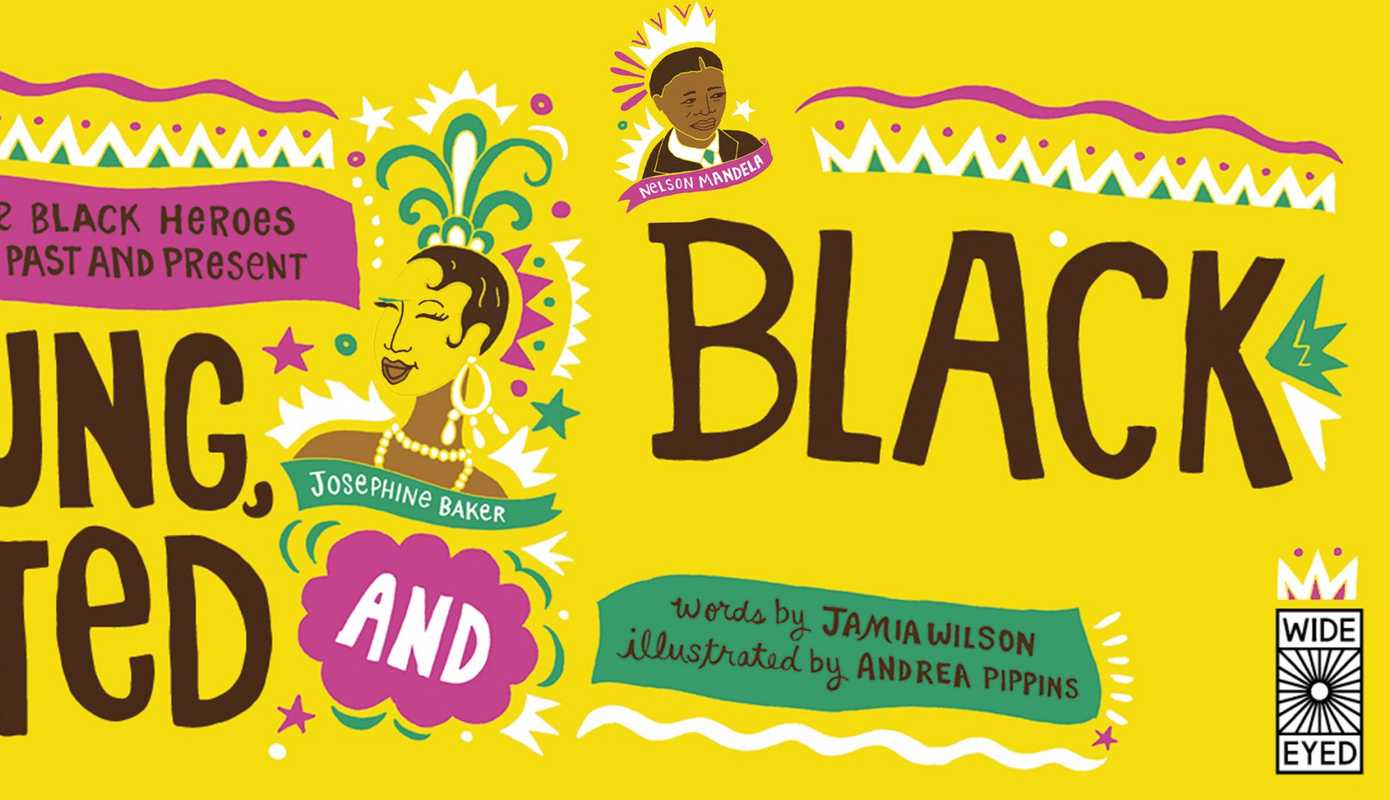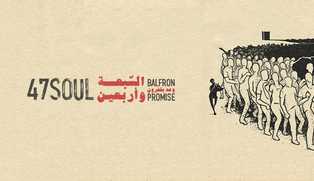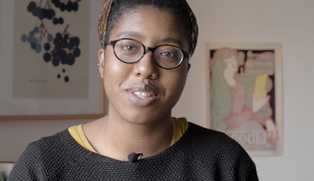When we spoke to the writer and illustrator behind the book Young, Gifted and Black, they described it as a love letter to the next generation of change-makers. The children’s book, which is a collection of 52 black icons who have changed the world, was created by Jamia Wilson and Andrea Pippins as the book they needed as kids – and we are very grateful they did. Not just because we know exactly what our younger siblings and cousins will be getting for all future birthdays/Christmases, but because it is a beautifully curated, illustrated and enriching book that everyone should have the pleasure of experiencing, no matter their age.
*
SD: What are your first memories? Jamia Wilson: My first memories include cuddling up with my grandparents in South Carolina while watching TV, listening to sounds through headphones and learning about speech in my father’s university campus lab, and singing spirituals with my mother before bedtime prayers. Andrea Pippins: Some of my first memories include me drawing, reading and writing stories. I always loved reading and spent many afternoons in my room with a book. Also, going to work with my mom who worked in a sewing studio where I watched her and the other ladies making beautiful dresses. SD: Your audience must range from kids, to teenagers, to people in their 20s through to their 80s who have young kids and grandchildren in their lives. What does childhood mean to you right now? AP: Childhood means freedom, wonder, and imagination to me. Imagination is the most important element of childhood; being able to conjure up ideas, dreams, stories, worlds, and futures is a beautiful necessity for figuring out who we want to be. It’s something adults sometimes lose as they get into the day-to-day of life. SD: What do you think the role of art and writing is in engaging young people, particularly young people of colour, in politics and the issues that are affecting them? And do you feel there is a particular urgency in getting books like this out at this particular moment? JW: We’re living in a moment where a global upsurge of authoritarianism, xenophobia, and attacks on free expression threaten hard-fought progress for humanity. Our children deserve to live in a world where they can achieve their fullest potential and have their dignity recognized, preserved and celebrated. Young people need to be encouraged to speak their minds, trust their ethical and moral instincts, and to express their creativity freely. They need to be shown and told that diversity benefits everyone and that their own unique personhood matters. AP: As a consumer of visual images, being able to see yourself reflected in art and stories helps young people (and people of all ages) feel validated, helps build confidence, supports creativity and imagination, and storytelling. Reflection is a form of affirmation, meaning “I am here” and “I matter.” As a creator, whether it’s expressing one’s self through writing, photography, or painting, the maker uses these tools to connect with others and share what’s happening in their world from their perspective. Having this control is powerful, especially when addressing political and/or cultural issues impacting one’s community. SD: There has been a really encouraging movement towards decolonising the curriculum here in the UK, both at a university and school level. Students, academics and writers are all finding ways to share their favourite books by black and brown writers. Can you tell us some writers that have influenced you both and your work? AP: Some artists and illustrators that have influenced my work are Emory Douglas, Malick Sidibe, Nina Chanel Abney, Ekua Holmes, and Luba Lukova. JW: I am thankful that I grew up in a home where my inherent intelligence was always reinforced at every age. As professors, my parents actively worked to ensure that I was getting an education at home that undid the reinforcement of implicit bias, racism, sexism, xenophobia, and individualism in the mainstream school system. My mom called it “deprogramming.” I was taught to think critically and encouraged to question what I learned and to interrogate what I heard at school against the values I and my family held dear like justice, fairness, equality, and interdependence. Writers that they introduced me to early on still influence my work as a writer, speaker, and a publisher. A few of these include Alice Walker and Nikki Giovanni. They also taught me post-colonial theory at a young age in accessible ways. When I was very young, my father would share some of the more bite-size quotes from Frantz Fanon, Angela Davis and poets like Pushkin and then encourage me to research them on my own in the encyclopedia to discover my own interpretations and thoughts. We often engaged in active debate in the home and I think about this all of the time when I have to support my claims on a TV segment or when I’m writing an op-ed. SD: Books like this give us real hope for the future. What still needs to change to make sure your work is getting the platform and support it deserves? JW: Children’s literary publishing is 80% white. We need systemic change to ensure that the stories being uplifted industry-wide reflect the diversity of our communities at all levels. I’m deeply interested in the transformative power of translations and exposing children to work from writers across the globe. We need more inclusive books across borders, not walls. We need a culture shift and it’s important for us to create systems of support and professional development for current creators and the generation of emerging writers, editors, publishers, illustrators that is growing up now. SD: If you had to pick one story/person that you’ve written about that you love, who would it be, and can you tell us about them? AP: I loved drawing Muhammad Ali. He had a larger than life presence, he was steadfast in his beliefs, and also courageous. I really enjoyed capturing his light. JW: I was listening to an NPR segment this week about Ava Duvernay’s upcoming film A Wrinkle In Time. It was wonderful to hear her talking about how her aunt influenced her creative career and inspired her to do the work she is passionate about. When I heard her voice, I turned the radio up because I recognized the story about her aunt during my research about her fascinating life. Her comments about her aunt’s impact on her inspires me to be the kind of auntie that supports the little ones I love in the same way. SD: The book, and correct me if I’m wrong, is named after Nina Simone’s song of the same title. If you could recommend a soundtrack to accompany your book, what 5 tracks would you choose? JW: Yes! The book is named after Nina Simone’s song in memory of her friend, the late, great black playwright Lorraine Hansberry. The songs I would choose as a soundtrack include: Young, Gifted and Black by Nina Simone (lyrics by Weldon Irvine), Freedom by Beyonce, Fight the Power by Public Enemy, Say It Loud I’m Black and I’m Proud by James Brown, and 7 Seconds by Youssou N’Dour and Neneh Cherry AP: Freedom by Pharrell Williams, Didn’t Cha Know by Erykah Badu, Django Jane by Janelle Monae, F.U.B.U by Solange Knowles, and All the Stars by Kendrick Lamar. You can get your own copy of Young, Gifted and Black here.




